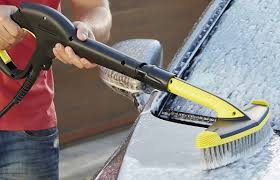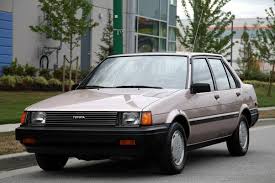It important we know what the manufacture’s warranty does not cover; Purchasing a new car, appliance or piece of technology is exciting. You got what you wanted at the best price. However, it is important to understand the warranty before making a purchase. The manufacturer’s warranty gives you peace of mind that your item will last for a certain period of time and that the company will repair or replace any defective parts. But what exactly does the warranty cover? The answer depends on many factors including where you purchased the item, how much it cost and whether there are any exclusions in place.
All warranties contain provisions that exclude certain kinds of damage and malfunctions.
Warranties are a promise by the manufacturer to repair or replace your product if it breaks. Warranties are legally binding agreements, but they aren’t the same thing as insurance. If you buy a warranty, it won’t cover things like normal wear and tear or damage caused by neglect.
All warranties contain provisions that exclude certain kinds of damage and malfunctions. For example:
- The warranty may not cover repairs made by anyone other than the manufacturer or its authorized service provider;
- The warranty doesn’t apply if you don’t follow instructions in the user manual when using your product; or
- The product may not be covered if it’s used improperly (for example, driving with bald tires).
Warranties often exclude damage resulting from misuse or abuse.
If you’ve ever owned a warranty, you know that it can be tempting to take advantage of the coverage. But before you do, be sure to read the fine print to see what is and isn’t covered. Warranties often exclude damage resulting from misuse or abuse. What does this mean?
Misuse (or improper use) refers to using something in a way it wasn’t intended for by the manufacturer. For example, if your washing machine has a maximum load capacity of 10 pounds and you put 20 pounds of laundry in at once, this would be misuse because 10 pounds was not within the range recommended by the manufacturer.
Abuse refers to intentionally damaging an item beyond normal wear and tear—for example running over your car with another car or dropping a laptop on concrete repeatedly until its screen cracks—in order to get money back on your insurance policy (or launch some sort of lawsuit).
Damage as a result of alterations or customization may not be covered.
The manufacturer’s warranty may not cover damage resulting from alterations or customization. For example, if you take your car in for an oil change and the mechanic damages the engine while changing it, you may be responsible for paying for the repairs on your own. This is because the dealer was not able to prove that any of their employees were negligent in causing this damage – they simply could not guarantee that their employees would perform a task without error and thus were not liable.
Parts not manufactured by the company are generally not covered under warranty.
As with other products, the manufacturer’s warranty on an appliance may not cover parts that are not made by the company. If you have a problem with your refrigerator or microwave and discover that it is due to a part failing or wearing out, contact the manufacturer directly.
If the manufacturer does not respond or is unable to help you, then contact the retailer for assistance.
Wear and tear is generally excluded from coverage.
While you may be surprised to hear that wear and tear is excluded from most manufacturer’s warranties, it’s actually a common practice. The warranty generally covers damage caused by defects in materials or workmanship, but it doesn’t cover the gradual deterioration of an item’s condition over time.
For example, if your dishwasher has stopped working because it’s internal motor is worn out; the manufacturer will likely refuse to cover this repair under warranty because it’s not considered a defect. Instead of having to pay for expensive repairs yourself every few years (or buying a replacement! consider installing a water softener system into your home as part of your everyday routine.
If you’re considering claiming wear and tear on any part of your kitchen appliances, keep in mind that since manufacturers know how long their products last before needing repairs or replacement parts they routinely deny such claims anyway.
Warranties generally do not cover incidental or consequential damages.
Warranties generally do not cover incidental or consequential damages. This means that they do not cover damage that is the result of a defect in the product, damage caused by a third party, or damage caused by a natural disaster.
Understand your warranty before making a purchase.
If you’re considering a purchase, it’s important to know what your warranty covers. A manufacturer’s warranty is a good way to protect your investment in case the thing breaks or doesn’t work as advertised. It can be difficult to figure out what type of coverage you need for your needs, so here is an overview of some common questions about manufacturer warranties:
- What does the warranty cover? Determine if there are certain parts or situations that won’t be covered by your warranty.
- How long will my product be covered? Find out how long the coverage lasts and whether there are any limitations on its length (for example, if there’s only one year on parts and labor).
- What can I expect from customer service during the warranty period? If something goes wrong with your product within those first few months or years after purchasing it, ask about their customer service response times before making a final decision on which model to buy.
More to that, you’ve just invested a lot of money in a new product and want to know that it will last. But what happens if something goes wrong? Will you be able to get your money back or a replacement? How long do you have to wait for one? These are questions most consumers wonder about when they buy products. The good news is that most manufacturers offer warranties on their products. The bad news is that these warranties were not created equally—and they don’t all protect consumers equally either. Here are some things manufacturers won’t cover under their own warranty:
The manufacturer’s warranty doesn’t cover damage caused by accidents.
Remember, the manufacturer’s warranty doesn’t cover damage caused by accidents. It also doesn’t cover:
- Damage to a product caused by being dropped or mishandled by you or anyone else.
- Damage caused by an accident during transportation, such as when your package was damaged during shipping and delivery due to poor packaging on your part.
- Damage to a product that was not defective in any way but became non-functional because of something that you did after acquiring it (such as dropping it on hard concrete). The manufacturer says this is because if they had known about these types of things happening beforehand, they would have designed the item differently or made it out of sturdier materials so that it would have been less likely for this type of thing to happen at all!
The manufacturer’s warranty doesn’t cover misuse and abuse.
The manufacturer’s warranty does not cover misuse and abuse. Misuse and abuse includes using the product in a way that it was not intended to be used, or as a result of you dropping or throwing the product on purpose.
Some examples of misuse and abuse include:
- Using your new hammer to pound in screws when you should have used a screwdriver instead
- Throwing your phone across the room because it wouldn’t respond when you pushed its buttons
The manufacturer’s warranty doesn’t cover if you change your mind about the product.
A warranty is a guarantee of quality. It protects the customer in the event that something goes wrong with the product, that way you know that it wasn’t your fault. The manufacturer’s warranty doesn’t cover if you change your mind about the product. If you decide that you don’t want to keep it anymore, or think it’s not good enough for your needs, then no matter how long ago it was purchased and despite how much effort went into making sure everything worked as intended (and even if nothing has broken yet), returning items under warranty will be difficult at best and impossible at worst. Read Also : 12 Reasons Why You Should Buy Used Car
What exactly does this mean? If a customer buys something from us and decides later on that they didn’t like their purchase after all—even though there was nothing wrong with our product—they can’t expect us to take back their purchase free-of-charge because they weren’t happy with their purchase decision from start to finish.”
The manufacturer’s warranty does not cover wear and tear.
Whether you’re a homeowner or business owner, the manufacturer’s warranty doesn’t cover wear and tear. Wear and tear is normal and expected. In fact, it’s often the result of normal use. For example:
- If you drop your phone in water, the manufacturer won’t replace it for free because this is considered accidental damage—it wasn’t caused by misuse on their part.
- If you change your mind about a product after signing up for a service plan with it (like buying an extended warranty), then those fees will not be covered by the manufacturer’s warranty either (unless they were included in another contract altogether—this can often happen when buying furniture).
Manufacturers often do not cover damage caused by accidents, misuse, or abuse.
When you buy a new product, the manufacturer’s warranty is one of the first things you should look at. It’s a promise that your item will be covered in case something goes wrong and it can’t be fixed within a certain amount of time.
However, there are many things that aren’t covered by this warranty—even though they may seem like defects or malfunctions to you. For example:
- Accidents aren’t covered by the manufacturer’s warranty
- Misuse isn’t covered by the manufacturer’s warranty (and neither is neglect)
- Abuse isn’t covered by the manufacturer’s warranty
Conclusion
We hope you’ve enjoyed learning about the different kinds of coverage your warranty might offer. It’s important to understand what your warranty covers and what it doesn’t before making a purchase. Note that manufacturer’s warranty is a legal document that protects you from damages caused by the product. It is important to understand what the warranty does not cover before purchasing a product so that you can make an informed choice about whether or not it will work for you.







